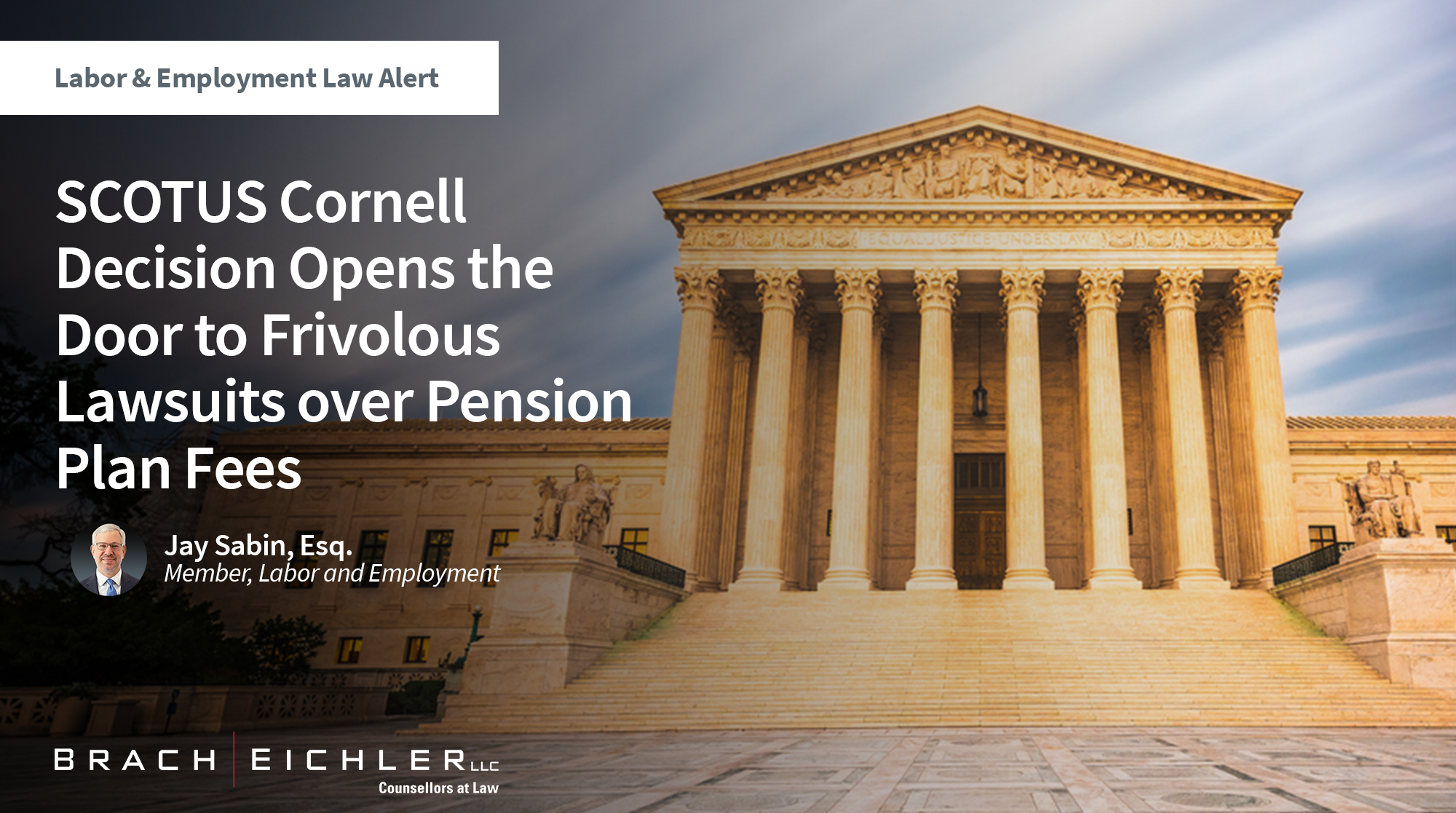SCOTUS Cornell Decision Opens the Door to Frivolous Lawsuits over Pension Plan Fees

5/16/2025
We have previously written about the explosive growth of “excessive fee” lawsuits against pension plans and the role that ERISA’s relatively easy attorney fee shifting standard has played. Nothing has changed that upward trajectory . . . until now. On April 17, 2025, the U.S. Supreme Court issued Cunningham v. Cornell Univ., No. 23-1007 (“Cornell”), a decision that will make it far easier for plaintiffs to force pension plan defendants to trial over whether service provider fees are reasonable and, therefore, defensible. Before Cornell, courts had much more leeway, depending upon the allegations pled, to dismiss these suits before discovery and certainly long before trial.
ERISA’s Prohibited Transaction Rule and Cornell
ERISA regulates how pension plans are structured and administered. Two of its provisions govern how much individual participants should be required to pay for third party plan services (such as the cost of keeping plan records, holding plan assets, and advising plan trustees about which investments to offer). These costs are typically passed along, in whole or in part, to participants in a defined contribution pension plan, like a 401k plan.
These twin ERISA provisions require that plan fiduciaries prudently manage a benefit plan “for the exclusive purpose of … defraying reasonable expenses of administering the plan” and that they not cause the plan to engage in a transaction for the “furnishing of . . . services . . . between the plan and a party in interest.” 29 U.S.C. § § 1104(a)(1), 1106(a). The latter requirement, referred to as a “prohibited transaction,” is exempted by another ERISA provision, Section 408(b), so long as the services are “necessary,” “reasonable compensation” is paid for the services, and the service provider makes certain disclosures to the plan fiduciary about the fees and the fee arrangement.
Cornell involved the question whether a lawsuit could simply allege that a service-related prohibited transaction occurred or whether it had to allege also that the exemption in Section 408(b) did not apply. If the latter was the case, courts could more easily dismiss suits at the preliminary stage by finding that a lawsuit had not sufficiently alleged that the fees were not “reasonable compensation.” And dismissing these suits at the preliminary stage is key for employers (and their insurers) because it avoids incurring hundreds of thousands of dollars (perhaps millions of dollars) of discovery-related expenses. Prior to Cornell, courts were relatively often dismissing these prohibited transaction claims at the preliminary stage.
The U.S. Supreme Court held in Cornell that a suit simply needed to allege that a prohibited transaction occurred to survive a motion to dismiss and that a plan would need to substantiate later in the litigation its affirmative defense that the fees were “reasonable compensation.”
Since Cornell‘s issuance, business interest groups have decried the decision and are already lobbying Congress and the pension regulators to overturn it. As the U.S. Chamber of Commerce put it, Cornell “will open the floodgates to frivolous litigation against every employer that sponsors an employee benefit plan.”
Risk Mitigation by Employers
Sophisticated employers are adopting a wholistic approach around plan fees, including requiring fiduciary continuing education, implementing a communications strategy that goes beyond the regulatory fee disclosure minimums, and instituting certain legal safeguards that may still permit a court to dismiss these excessive fee suits before becoming enmeshed in costly discovery. No single approach is right for every employer and company culture and employee relations are important factors in determining how best to mitigate risks.
For questions regarding this alert, or with any other benefit or employment issue, please contact:
Jay Sabin, Member, Labor and Employment Practice at 917-596-8987 or jsabin@bracheichler.com













